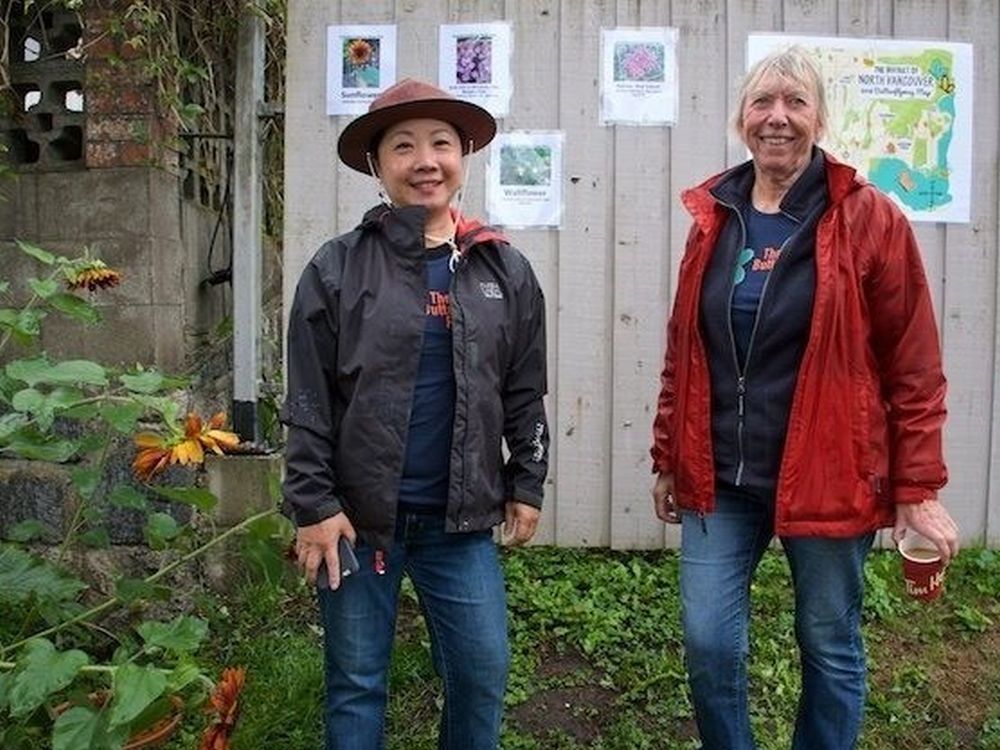Butterfly Rangers wanted: Year 4 begins for eight-month project to help nature's pollinators

Credit to Author: Gordon McIntyre| Date: Sun, 09 Feb 2020 22:40:54 +0000
It’s time for that talk about the birds and the bees … and the butterflies.
If you’re passionate about native wildflowers and wild pollinators such as Anna’s hummingbirds, honey bees and, especially, Western Tiger Swallowtails and other butterflies, the Vancouver Butterflyway Project is looking for you.
Feb. 10 is the launch date of its 2020 season in Vancouver, Richmond and the District of North Vancouver, the fourth year the project has been underway. Four dozen or so Butterflyway Rangers will be recruited to plant and tend the plants that butterflies need to lay their eggs on and to feed upon.
“What’s of real concern is some of our local species are not showing up,” said Winnie Hwo of the David Suzuki Foundation and the project lead for Butterflyway Rangers in B.C.
“The concept is to get citizens together to find solutions to our environmental challenges.”
That bees have been disappearing has been all over the news, but not so much with butterflies. In Ontario and Quebec, where the national Butterflyway Project began, the number of Monarch butterflies showing up from their migration from Central Mexico has dropped by 90 per cent, Hwo said.
On the west coast, the Western Monarch was once plentiful around the Lower Mainland.
“What we learned in 2019 was that most of the Western Monarchs didn’t make it past Oregon from their overwintering in northern California because they were so weak,” Hwo said.
And migratory butterflies that do make it to Metro Vancouver, the Fraser Valley and Vancouver Island, such as the West Coast lady and the painted lady, often arrive with their colours faded.
“Their colours should be a sharp orangie-brown,” Hwo said. “They are not doing well.”
It’s believed the same factors that are causing the decline in bee populations are behind the fall in butterfly numbers, as well: Wildfires, drought, flooding, chemicals.
“We think the overuse of pesticides and climate change are destroying their habitat,” Hwo said.
Vancouver map for the 2020 Butterflyway Project.
To join the project, folks need to commit for eight months. For those who qualify, a one-day training program will be held on March 7 at the UBC Botanical Garden. Information can be found at the David Suzuki Foundation website.
Rangers plant both butterflies’ host plants (Pacific bleeding heart, mock orange, ocean spray, chokecherry, hardhack) and the colourful native plants they need for food (golden rod, yarrow, pearly everlasting, etc.).
Last year, 45 Rangers were recruited and they planted 66 pollination patches in yards, low-lying balconies, green spaces and schools such as East Van’s Windermere Secondary and Pierre Elliott Trudeau Elementary.
“The kids and their teachers are amazing,” Hwo said. “The students get so excited, some had never touched soil before.”
Butterflyway Ranger Carol Both at Langara University, hosting an open house in 2019.
The plants arrive in April, volunteers arrange planting parties, sighting expeditions begin in June.
Carol Both, a ranger who is vice-president and program chairwoman for the Sunset Community Garden committee, said the program is uplifting.
“Being a Butterflyway Ranger reinforced my belief that a small group of dedicated, like-minded people can make a big difference in many way in any community,” she said.
CLICK HERE to report a typo.
Is there more to this story? We’d like to hear from you about this or any other stories you think we should know about. Email vantips@postmedia.com.